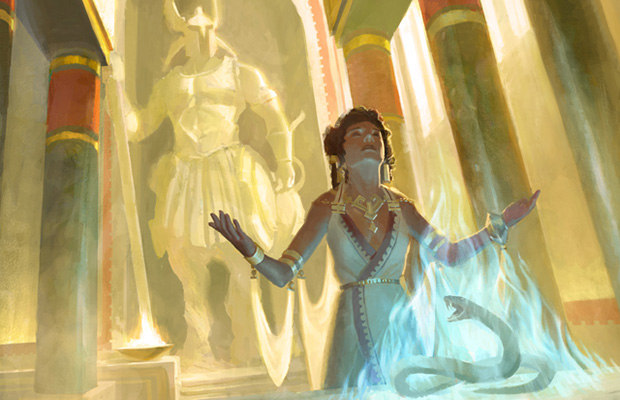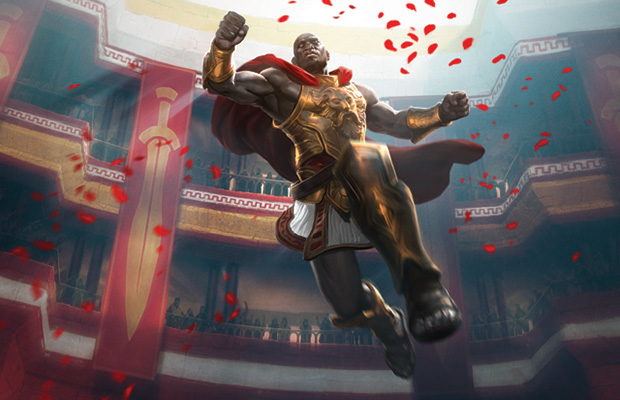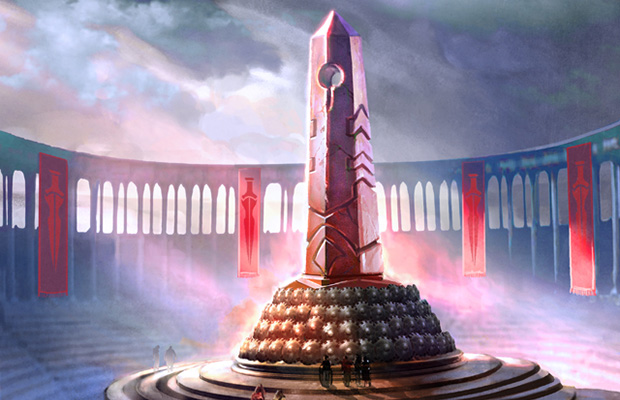I Iroan
The ode is a Classical form of lyric poetry. Its name comes from the Greek aeidein, "to sing," and this sort of poem was intended to be performed at public occasions to dancing and the strains of lyre and flute.
The most famous composer of odes in the ancient Greek world was Pindar, who is credited with inventing the form. His poems memorialized the winners of athletic competitions but also incorporated lofty ideals of philosophy and religion.
In this piece, I attempted to recall the lyrical style of Pindar in a victory ode to the champion of the Iroan Games in Akros.
—Jennifer

Priest of Iroas | Art by Clint Cearley
ing , elegant Muses of star-dappled Nyx
The joyous name of Him, glory-crowned,
Who raises victor's pennant o'er battle ground,
Bestows His love on th' highest of poleis,
Bold Akros, paragon preeminent
In war, in peace eternal vigilant.
The Kolophon's apex blazes higher
Than sun-spear Khrusor's sacred fire
And Purphoros's forge; Keranan bolt
Of prophecy its epic ramparts smote.
Yet, eclipsing all, Thine aegis gleams,
Philomachos, who shields the deme.

Arena Athlete | Art by Jason Chan
Brows bent, we pray, as Thou Anax
Endowed, in holy tournaments,
The wreath of mortal excellence,
Now bless Thy child, Pandamator.
Athlete superb, famed pankratist,
Euphoric in victory rose-kissed.
O tetrapteric-helmed, spear-shaking
Fame's epitome, bright-shining
Hoplite's lord, Iroas, hegemon.
Enthusiasts, eyes bright, oiled skin,
Thy happy youth, physiques aglow,
Gymnastic offertory show.
Akroan heir, the weighty pallium
Of honor lies, god's panoply,
On your character. Let all see
Humility, not hubris, as befits
Your family, Stratians, throne;
Or fall to grim Erebos, disowned.
Th'empyrial heights where Nymosyne,
Arissa, Lanathos, so many
Strove, whose phalanxes monsters slew
And kakomancers sent below,
Echo sweet paeans. In agora raise
Kylix and pause in reverent praise.

Temple of Triumph | Art by Jason Felix
